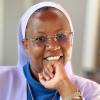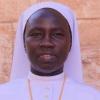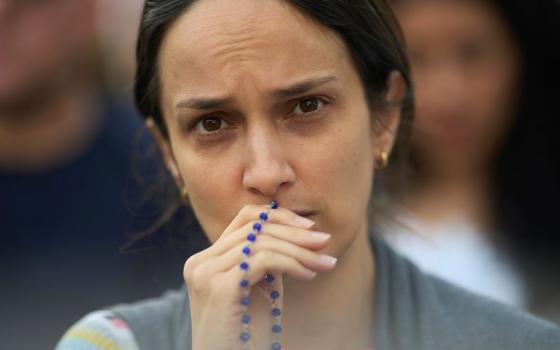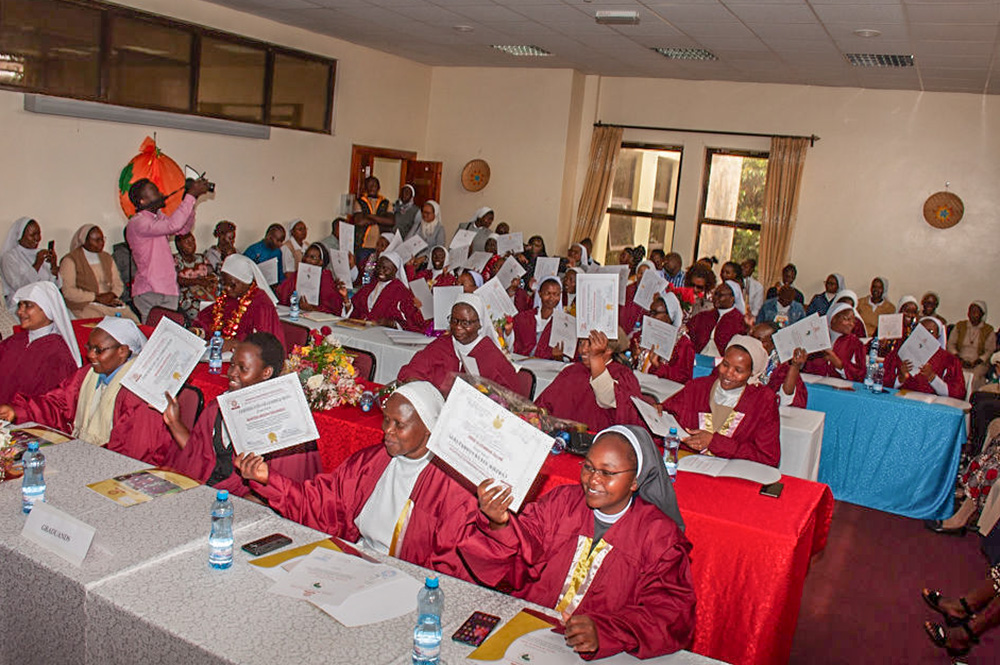
Graduates of the Hilton-Hekima Sisters Scholars Program toss their certificates in celebration after the May 2024 graduation. (Courtesy of Religious Sisters Communicators' Foundation Uganda)
The Hilton Foundation, in collaboration with Hekima University College in Nairobi, Kenya, has put to the forefront the promotion of women theologians under the Hilton-Hekima Sisters Scholars Program for religious sisters across Africa. An opportunity for training sister theologians, it offers a one-year certificate course in Introduction to Theology for religious and laypersons.
Vatican II called for an open study of theology for all, but consecrated persons, sisters and the laity have generally not had the opportunity to study theology as their priest counterparts have. The study of theology in Africa has been male-dominated, left only to those interested in the priesthood.
A degree in theology offers limited opportunities to earn a living as a woman theologian, since one can only be a lecturer at a theological institution, a catechist and, for religious women, a formator.
However, theology has become part of religious formation, and formation is incomplete without a basic introduction to theology. Also, times are changing, and regardless of the challenges, more women are embracing courses in theology. As some remain at the certificate level, many more are pursuing further studies in theology.
The theology program at Hekima University College among religious women in Africa is the biggest attraction for theological courses. According to the college's scholarship programs coordinator, Emmanuel Sr. Gladys Ndege, the number of applicants has continued to rise steadily over the last three years since the program began in 2021.
Advertisement
This year, the program has 195 sisters from 15 African countries: Kenya, Uganda, Tanzania, Zambia, Rwanda, Zimbabwe, Malawi, Ethiopia, Ghana, Benin, Nigeria, Lesotho, South Africa, Namibia and South Sudan. Others will be in attendance from Italy, France, Canada, Congo and Scotland.
The program uniquely accommodates sisters from diverse professional fields and apostolates, including teachers, social workers, nurses, doctors, formators, administrative officers and pastoral agents. The first group (2021-22) had 135 students, the second group (2022-23) had 143, and the third group (2023-24) had 162.
The certificate course has made participants realize a course in theology is integral to their spirituality, apostolates and pastoral work. According to the evaluation report indicators of the program, a lot has been achieved among those who have participated.
For instance, the course has helped build the sisters' confidence. The program is also cultivating a culture of study among religious women because, at Hekima, the faculty members emphasize rigorous research. Thus, students have no option but to befriend books.
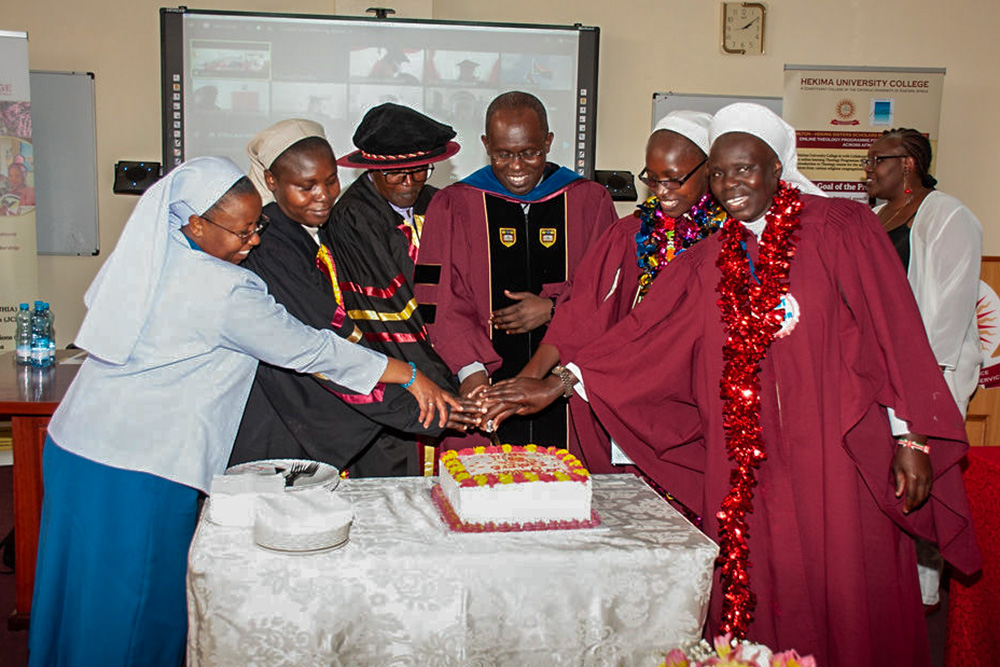
Emmanuel Sr. Gladys Ndege, left, helps cut the cake to celebrate the graduates of the 2023-24 cohort for the the Hilton-Hekima Sisters Scholars Program at Hekima University College in May 2024. (Courtesy of Religious Sisters Communicators' Foundation Uganda)
Because the course is online, the majority of African religious women who had previously not given much consideration to new information communication technology now have no option but to embrace it, enhancing technological advancement among consecrated persons.
The program conducts virtual classes from 5 p.m. to 8 p.m. Nairobi time, allowing the sisters to attend to their congregational obligations and different apostolates. In addition, the department conducts periodic visits to the students' countries for evaluation, mentorship and encouragement. Therefore, it offers an integral approach to life situations.
The success of the program has not been without challenges, such as limited digital literacy among sisters and poor internet connectivity in many parts of Africa. However, students have demonstrated resilience by adapting to new technologies, forming supportive communities, managing their time effectively, and finding creative ways to stay motivated and engaged.
The participants, partners and beneficiaries express immense gratitude and feel indebted to the Conrad Hilton Foundation, which made it possible for more than 400 religious women to acquire knowledge in theology. It is a noble, worthwhile course because it is reawakening faith in Africa through the sisters' integrated apostolate.
